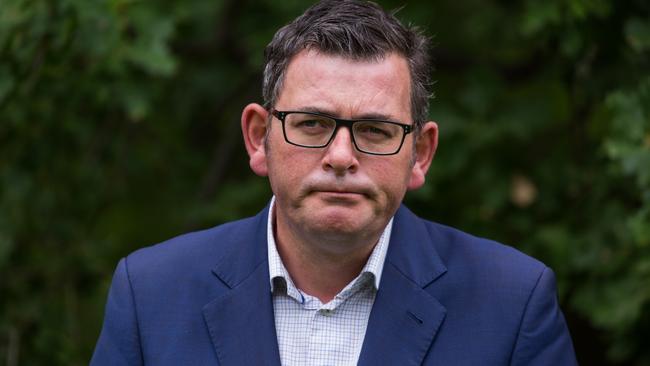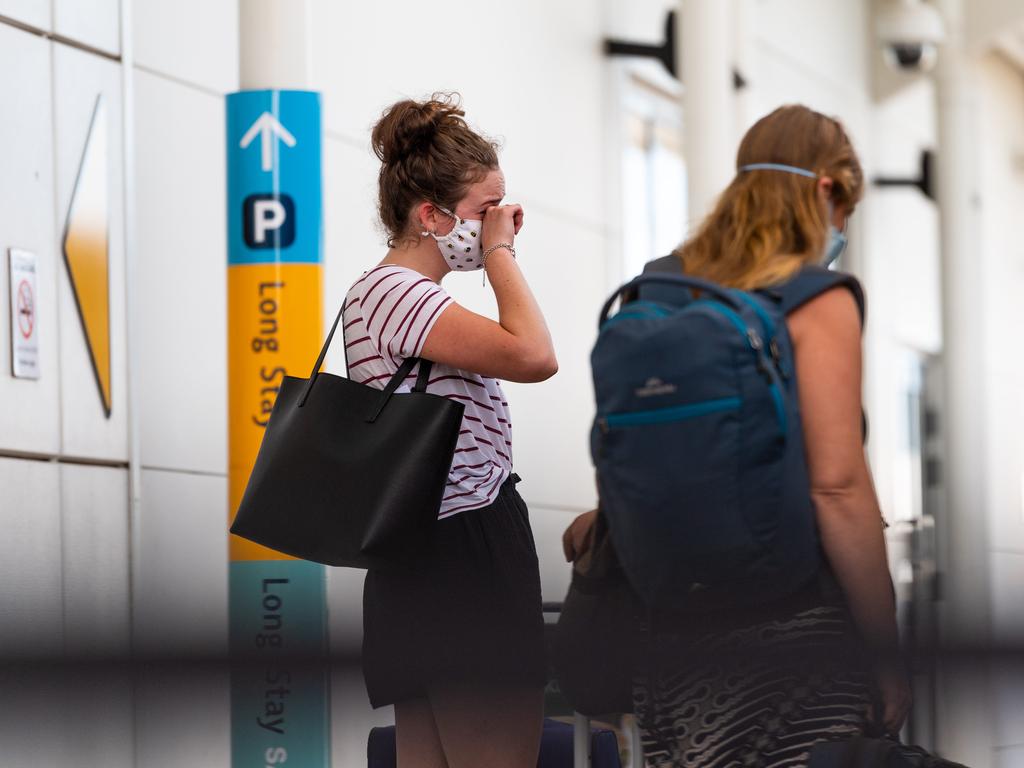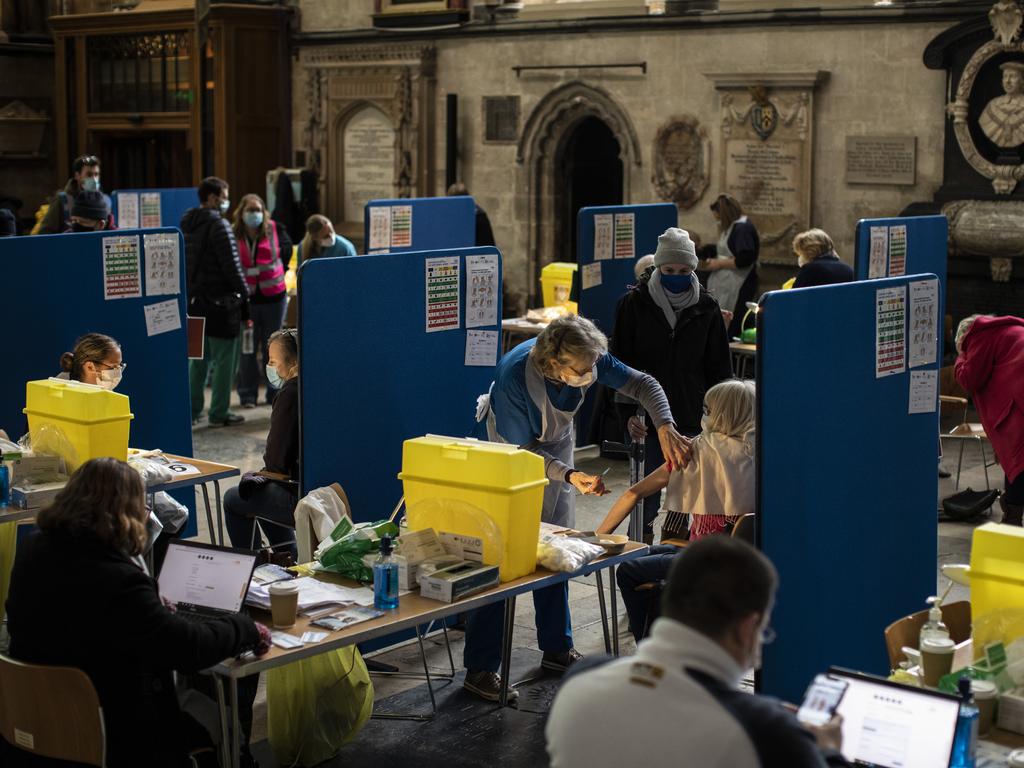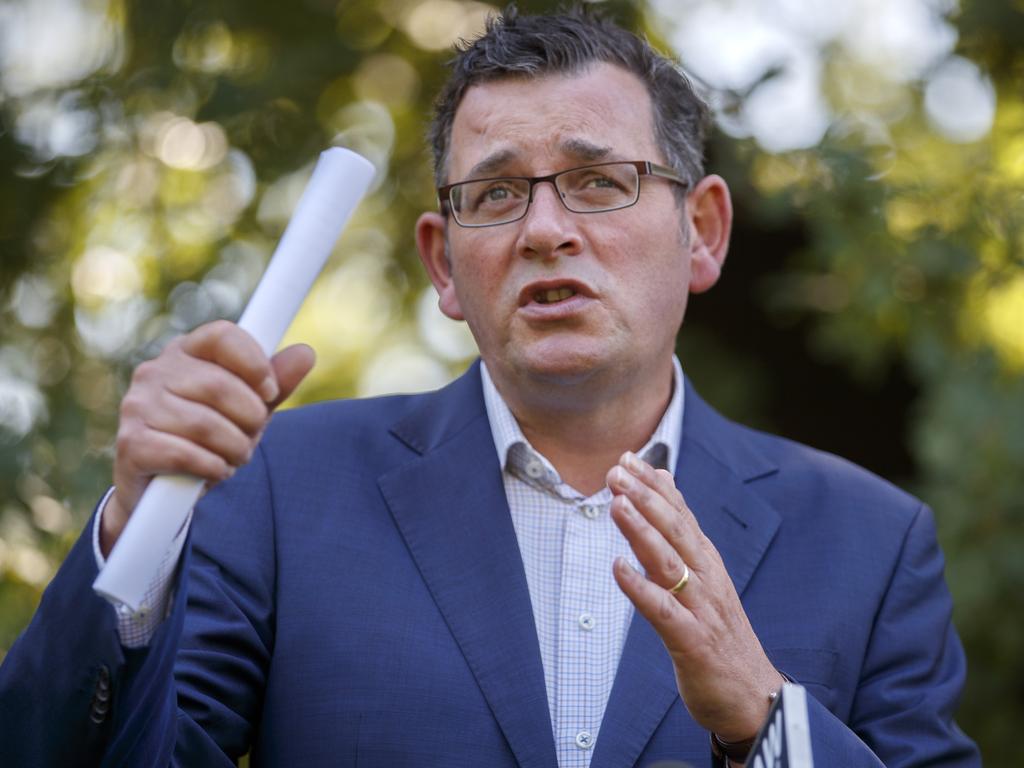State paralysed as Daniel Andrews panics

Mr Andrews insisted on Friday on comparing Victoria’s predicament not with the COVID-19 outbreak on Sydney’s northern beaches at Christmas but with the recent lockdowns in Perth and Brisbane. In both cities, a single case of the British variant of the virus was detected. It did not spread in either city, fortunately. Nor does Mr Andrews’ claim that the UK variant moves at “light speed” bear scrutiny. It is not, as originally claimed by British Prime Minister Boris Johnson, 70 per cent more infectious than the original Wuhan strain.
As health editor Natasha Robinson writes, a person who is infected with the UK variant will pass it on to 14.7 per cent of their close contacts, compared with 11 per cent for the original strain. It is about 34 per cent more infectious. But given Melbourne’s limited spread, it should be containable with extensive testing, rigorous contact tracing and good suppression strategies.
Scott Morrison was in Melbourne on Friday visiting the CSL factory where the University of Oxford-AstraZeneca vaccine will be made. He was restrained in his comments, keeping out of the politics of the drama. The Prime Minister urged Mr Andrews to opt for a “proportionate, targeted” response. A stage four statewide lockdown does not qualify on that score. It is ridiculous overkill. Just a week ago, we praised Mr Andrews for what seemed like a new-found pragmatism. He refused to follow in the footsteps of Queensland Premier Annastacia Palaszczuk and Western Australia’s Mark McGowan and lock down Melbourne when the news broke that a hotel quarantine worker had tested positive for COVID-19. “There is one case, there’s no need for people to panic,” Mr Andrews said then. His goal was to “try to find that COVID normal, to try to have economic activity, trying to have that economic rebuilding and recovery, and manage this risk” rather than trying to eliminate it. He wanted to avoid imposing rules that would affect millions of people. He lined up, effectively, with the pragmatic approach of NSW. And his attitude was a marked and welcome improvement from his dictatorial approach during Victoria’s second coronavirus wave last year. It helped, no doubt, that his government was heavily invested in the Australian Open, welcoming hundreds of tennis players and coaches, some from overseas COVID-19 hotspots.
A few days later, Mr Andrews was back to his pugnacious, unreasonable self, claiming “I lead higher standards” of hotel quarantining than NSW and other states. NSW Premier Gladys Berejiklian did not rise to the bait, noting Mr Andrews “is pretty good at spin”. Friday’s developments now make his hollow boast look even sillier. And his tortured rhetoric on Friday could not disguise his fears that Victoria’s quarantine and contact-tracing systems had lost control of the Holiday Inn outbreak. Nor did his rhetoric disguise his contempt for the fundamental right of Australian citizens to return to their homeland. An orderly system of return, allowing for quarantining, is reasonable during the pandemic. But Mr Andrews’ authoritarian suggestion that returning Australians be shut out, apart from a small number on “compassionate” grounds, would deny what many regard as a basic right. His call for a “cold, hard discussion” about cutting the number of arrivals would appal many Australians concerned about loved ones.
The lockdown will have “monumental social and economic costs”, Business Council of Australia chief executive Jennifer Westacott points out. Businesses will be deciding whether to lay off staff or destroy inventory. Airlines will be cancelling thousands of flights and shifts. As Ms Westacott says: “If NSW can manage a much bigger outbreak, keep the state open and people safe, then there is no reason other states can’t do the same.” As seven million Victorians endure confinement, home schooling, job losses, loneliness and anxiety, and many others around the nation seek testing from the Holiday Inn cluster, the need for a successful vaccination program has never been clearer.





Premier Daniel Andrews’ rhetoric on Friday when he announced Victoria’s third COVID-19 lockdown in a year was as unconvincing as it was exaggerated. Some of it bordered on hysteria, suggesting his government had lost control of a challenging though far from dire situation. The entire state of Victoria — despite the fact regional areas are coronavirus free — was locked down from 11.59pm on Friday “because of the hyper-infectivity and the speed at which this UK variant moves”. The virus, Mr Andrews claimed, was moving “at a velocity that has not been seen anywhere in our country over the course of these last 12 months”. It was “incredibly difficult to do contact tracing” because there was no gap “between when we have the first case and their close contacts and potentially others that they have spent time with”. Such claims cannot be taken at face value when the cluster centred on the airport Holiday Inn hotel stands at 16 cases. It remains to be seen how widely the danger of further related outbreaks has spread. On Tuesday morning, Rachel Baxendale reports, a woman linked to the Holiday Inn cluster worked a shift at the busy Brunetti cafe at Melbourne Airport’s Terminal Four. She tested positive for coronavirus the following day. During her shift, passengers flew out to Sydney, Brisbane, Cairns, the Gold and Sunshine coasts, Newcastle and other destinations.